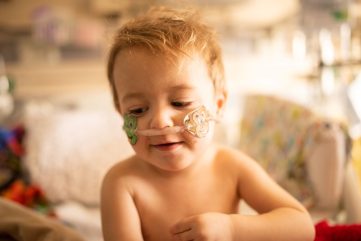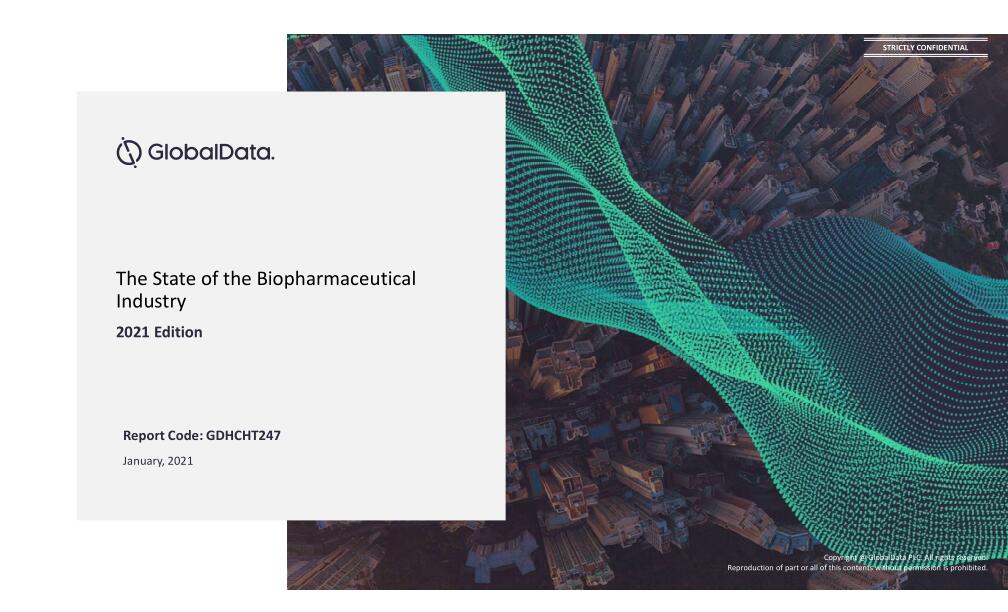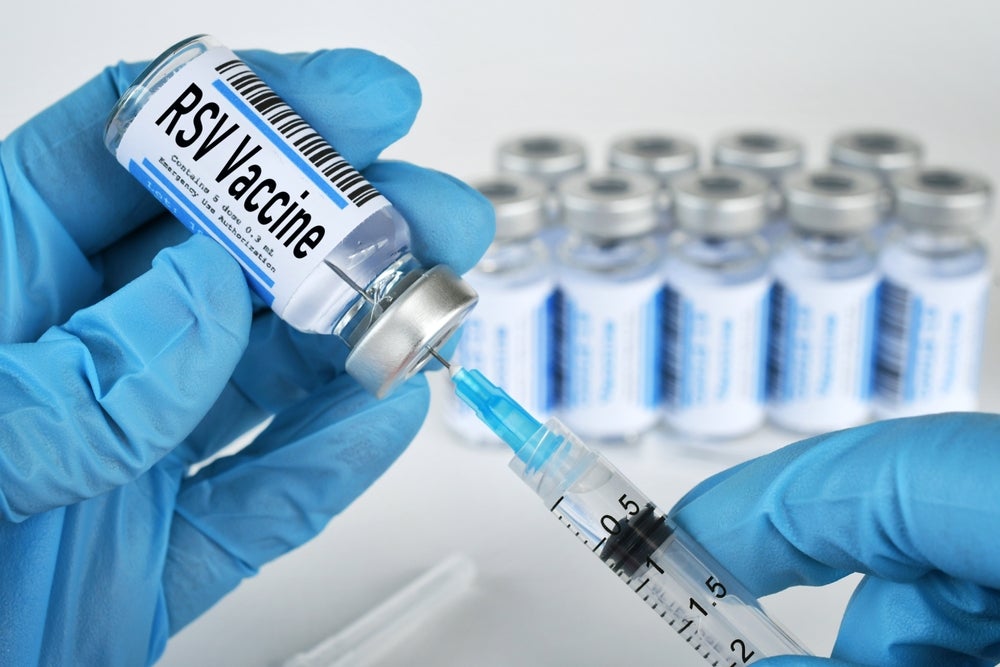
After record-high levels of respiratory syncytial virus (RSV) were seen in several countries, the pharmaceutical landscape for RSV infections has changed drastically, with two vaccines and a monoclonal antibody therapy gaining regulatory recognition in several countries.
However, countries like the UK are yet to see the major impacts of these approvals.
In the northern hemisphere, the RSV season typically begins in October and ends in April. In 2023, following the Covid-19 pandemic, RSV infection incidence rocketed in several countries, including the UK and the US. In 2023, the Oxford Vaccine Group reported that RSV was responsible for 450,000 general practitioner (GP) appointments, 29,000 hospitalisations, and 83 deaths per year in children and adolescents in the UK. “RSV has turned out to be a bigger problem amongst older adults than it is amongst babies,” says Dr. Peter Openshaw, professor of experimental medicine at Imperial College London.
Then, after years of inactivity, several breakthroughs occurred in the RSV landscape. In November 2022, the UK Medicines and Healthcare products Regulatory Agency (MHRA) approved Sanofi’s Beyfortus (nirsevimab) for the prevention of lower respiratory tract disease in newborns and infants during their first RSV season. In July 2023, the US Food and Drug Administration (FDA) approved the monoclonal antibody therapy, making it the first monoclonal antibody therapy to be approved for the disease since the approval for Swedish Orphan Biovitrum’s Synagis (pavilizumab) 25 years earlier.
Pfizer received US and UK approval for Abrysvo in August and November 2023, respectively. This made Abrysvo the first vaccine for pregnant individuals to prevent lower respiratory tract disease (LRTD) and severe LRTD caused by RSV in infants from birth through six months of age. In July 2023, the MHRA authorised GSK’s Arexvy for adults ages 60 years and older.
How well do you really know your competitors?
Access the most comprehensive Company Profiles on the market, powered by GlobalData. Save hours of research. Gain competitive edge.

Thank you!
Your download email will arrive shortly
Not ready to buy yet? Download a free sample
We are confident about the unique quality of our Company Profiles. However, we want you to make the most beneficial decision for your business, so we offer a free sample that you can download by submitting the below form
By GlobalDataSee Also:
Despite these approvals, Abrysvo and Arexvy are yet to be rolled out in the UK because the Joint Committee on Vaccination and Immunisation (JCVI) is still conducting a cost-benefit and safety analysis. As the UK awaits official plans for an immunisation program, other regions such as Galicia, Spain have already achieved success with their RSV campaigns, integrating the new pharmaceutical products.
The promising Beyfortus rollout
Thus far, Galicia, Spain has been the first area to publicly share real-world data from its implementation of Beyfortus. The Galician 2023–24 immunisation campaign against RSV began on 25 September 2023 with plans to end on 31 March 2024.
The Galician campaign has categorised the target groups as “seasonal,” “catch-up,” and “high-risk”. The seasonal approach consists of giving each infant born during the RSV season a dose of Beyfortus in the first 24 hours of life. In the catch-up group, infants ages 0–6 months receive a dose of the monoclonal antibody therapy at the start of the RSV season. In the high-risk group, doctors can give a dose of Beyfortus to any child ages 6–24 months with severe RSV.
Three weeks into the campaign, Beyfortus uptake was 97.5% in the high-risk group and 81.4% in the catch-up group. Furthermore, the overall uptake of the therapy was 92.6% by 31 October, with no severe adverse events reported despite the administration of 7,241 doses. Alongside the positive implementation strategy, rates of RSV-related hospitalisation in the region fell during the implementation period compared to the 2022–23 season.
“The question is going to be whether it will have any secondary benefits in the communities in terms of fewer infections amongst older adults, particularly so in grandparents who are in contact with babies. Is it going to have any impact on the circulation of RSV?” asks Openshaw.
However, despite the successful rollout in Galicia, Dr. Ultan Power, a professor of experimental medicine at Queen’s University Belfast, says there is currently a debate surrounding the universal use of the antibody for all children after birth in the UK.
Even though it is approved in the UK, Beyfortus has yet to be rolled out as regulators are still defining the target patient population. Synagis was previously only available to high-risk infants with other comorbidities such as congenital heart failure, so it is possible that that would be the label for Beyfortus, says Power. “We know that the majority of the kids that end up in the hospital because of RSV do not have these underlying conditions, so the difficulty is in identifying the ones that would benefit most from Beyfortus or an equivalent monoclonal antibody, in terms of preventing severe disease with RSV,” says Power. He predicts that UK regulators may have to prescribe the therapy universally in the meantime, as was done in Spain, until the correct biomarkers are found to identify high-risk infants for RSV.
UK vaccine rollout
Thus far, in the UK, the approved RSV vaccines have yet to be rolled out since a cost-effectiveness analysis that is needed to facilitate national reimbursement is yet to be completed. The organisation has advised the creation of a program for older adults ages 75 years and older, using a one-off campaign strategy. However, JCVI is still in a consultation period, keeping its recommendations under review as further data emerges. As regulators continue deliberating the vaccine rollout, experts raise concerns about disease awareness.
Power predicts that there will be difficulty in getting elderly people vaccinated in the UK due to a lack of awareness of RSV as a cause of severe respiratory disease. “There is a tremendous amount of education required to educate the public about what RSV is, what it causes, and the consequences of getting RSV for a reasonable amount of people,” Power says. Due to the lack of awareness surrounding the virus, Alastair Sutcliffe, PhD, professor of general paediatrics at University College London, predicts the biggest push for vaccination may come from individual physician consultations. Openshaw also predicts that once the vaccines are actually available, awareness will be built through individual physician recommendations to older adults and mothers alike
Power predicts that RSV vaccines may be given alongside those for influenza and Covid-19. In the US, the Centers for Disease Control and Prevention have already recommended this approach, advising older adults to take all three vaccines in quick succession.
Moreover, companies such as Modernaare also exploring the possibility of combining such vaccines into a single shot. However, Openshaw expresses some concerns with this approach. Many pharmaceutical manufacturers may struggle to tackle the constant evolution of influenza and Covid-19 variants in their vaccines, he says. The messenger RNA vaccine route may be a solid approach to tackle this, but further study is needed, he adds.
Next steps for RSV vaccines and treatment
“The next frontier in RSV vaccines is the development of one for babies,” says Sutcliffe. He suspects that this could massively reduce the incidence of RSV in the elderly population, alongside the reductions in children. Sutcliffe explains that most older adults contract RSV through contact with children or grandchildren. However, barriers remain before this can be achieved.
Historical hesitancy is one issue. Power points to a 1960s scandal involving a small clinical trial for formalin-inactivated RSV vaccine, which enhanced disease in 80% of the vaccine recipients and resulted in the death of two children. However, the currently approved vaccines were developed after a better understanding of the virus structure was formed in recent decades, and multiple Phase III studies have deemed them to be safe.
Nonetheless, few drug manufacturers have approached prophylactic development for this patient group, leaving most of the work to the National Institutes of Health (NIH), which is recruiting for clinical trials with investigational vaccines for infants.
“The balance between a good effective vaccine that is safe has not been developed yet for the newborn infants, but it is very needed,” says Power.






